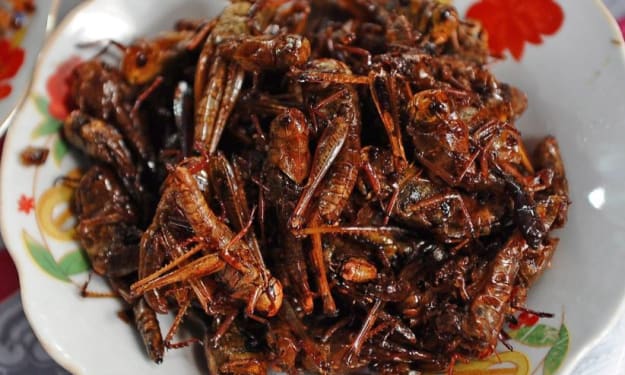Why humans fart in every MORNING? Do you know why?
farting

Why humans fart in every MORNING? Do you know why?

There are certain types of foods that are known to cause gas and make people fart. Some common examples include:
Beans and legumes are a staple food in many cultures around the world. They are a good source of protein, fiber, and other important nutrients. However, one of the most notorious side effects of eating beans and legumes is flatulence, or farting.
Why do beans and legumes make us fart?
Beans and legumes contain complex carbohydrates called oligosaccharides, which our bodies cannot fully digest. These oligosaccharides pass through our digestive system undigested and are fermented by the bacteria in our large intestine. This fermentation process produces gases such as carbon dioxide, methane, and hydrogen, which are then expelled through the rectum.
In addition to oligosaccharides, beans and legumes also contain fiber, which can further contribute to flatulence. Fiber is important for maintaining digestive health, but too much fiber too quickly can cause gas and bloating.
How can we reduce flatulence from beans and legumes?
If you're concerned about flatulence from eating beans and legumes, there are several steps you can take to reduce its likelihood:
Soak the beans before cooking: Soaking beans in water for several hours before cooking can help to break down some of the complex carbohydrates that cause flatulence.
Cook the beans thoroughly: Cooking beans thoroughly can also help to break down the complex carbohydrates and make them easier to digest.
Start slowly: If you're not used to eating beans and legumes, start with small portions and gradually increase your intake over time.
Chew thoroughly: Chewing your food thoroughly can help to break down the carbohydrates and make them easier to digest.
Use digestive aids: Over-the-counter digestive aids such as Beano can help to break down the complex carbohydrates and reduce flatulence.
In conclusion, flatulence from eating beans and legumes is a common side effect, but it shouldn't stop you from enjoying these nutritious foods. By taking steps to reduce flatulence, you can continue to enjoy the many health benefits of beans and legumes without the embarrassment of excessive farting.
Cruciferous vegetables: Vegetables such as broccoli, cauliflower, and Brussels sprouts contain raffinose, which is another complex carbohydrate that can cause gas.
Dairy products:
Dairy products are a common part of many people's diets, but they can also cause flatulence, or farting. Some people are more susceptible to this than others, and the specific dairy product that causes flatulence can vary. In this blog post, we'll explore which dairy products are most likely to cause flatulence and why.
Why do dairy products cause flatulence?
Dairy products contain a sugar called lactose, which many people have difficulty digesting. Lactose intolerance is a common condition in which the body does not produce enough lactase, the enzyme that breaks down lactose. When lactose is not properly broken down, it passes into the large intestine where it is fermented by bacteria. This fermentation process produces gases such as carbon dioxide, methane, and hydrogen, which are then expelled through the rectum.
Which dairy products are most likely to cause flatulence?
Some dairy products are more likely to cause flatulence than others. Here are some of the most common culprits:
Milk: Milk is high in lactose and can be difficult for many people to digest. This is why some people experience flatulence after drinking milk.
Ice cream: Like milk, ice cream is also high in lactose and can cause flatulence in some people.
Cheese: Cheeses that are high in lactose, such as cottage cheese and cream cheese, can cause flatulence in some people. Hard cheeses, such as cheddar and Parmesan, are lower in lactose and are less likely to cause flatulence.
Yogurt: Yogurt contains lactose, but the bacterial cultures used to make yogurt also produce lactase, which can make it easier to digest for some people.
Butter: Butter is low in lactose and is less likely to cause flatulence than other dairy products.
How can we reduce flatulence from dairy products?
If you're concerned about flatulence from eating dairy products, there are several steps you can take to reduce its likelihood:
Choose lactose-free dairy products: Many dairy products are available in lactose-free versions, which can be easier to digest.
Try dairy alternatives: Plant-based milk alternatives such as soy, almond, and oat milk are low in lactose and may be easier to digest for some people.
Take lactase supplements: Over-the-counter lactase supplements can help to break down lactose and reduce flatulence.
Experiment with different dairy products: Some dairy products may be easier to digest than others, so it's worth experimenting to see which ones work best for you.
In conclusion, flatulence from dairy products is a common side effect, but it shouldn't stop you from enjoying these nutritious foods. By taking steps to reduce flatulence, you can continue to enjoy the many health benefits of dairy products without the embarrassment of excessive farting.
Whole grains:
Whole grains are an important part of a healthy diet, providing fiber, protein, and essential nutrients. However, like other high-fiber foods, whole grains can also cause flatulence, or farting. In this blog post, we'll explore why whole grains can cause flatulence and what you can do to reduce its likelihood.
Why do whole grains cause flatulence?
Whole grains are high in fiber, which is an indigestible carbohydrate that passes through the digestive system mostly intact. This means that when we eat whole grains, the fiber can reach the large intestine, where it is fermented by bacteria. This fermentation process produces gases such as carbon dioxide, methane, and hydrogen, which are then expelled through the rectum.
In addition to fiber, whole grains also contain oligosaccharides, which are complex carbohydrates that our bodies cannot fully digest. Like fiber, oligosaccharides are fermented by bacteria in the large intestine, producing gases that cause flatulence.
Which whole grains are most likely to cause flatulence?
Some whole grains are more likely to cause flatulence than others. Here are some of the most common culprits:
Wheat: Wheat is a common ingredient in bread, pasta, and other grain-based foods. It contains both fiber and oligosaccharides, making it a likely culprit for flatulence.
Barley: Barley is another whole grain that is high in fiber and oligosaccharides and can cause flatulence in some people.
Rye: Rye is a whole grain that is often used in bread and can also cause flatulence in some people.
Oats: Oats are high in fiber but are less likely to cause flatulence than other whole grains.
How can we reduce flatulence from whole grains?
If you're concerned about flatulence from eating whole grains, there are several steps you can take to reduce its likelihood:
Start slowly: If you're not used to eating whole grains, start with small portions and gradually increase your intake over time.
Soak grains before cooking: Soaking grains in water for several hours before cooking can help to break down some of the complex carbohydrates that cause flatulence.
Cook grains thoroughly: Cooking grains thoroughly can also help to break down the complex carbohydrates and make them easier to digest.
Choose low-fiber grains: Some grains, such as white rice and quinoa, are lower in fiber and may be less likely to cause flatulence.
Take digestive aids: Over-the-counter digestive aids such as Beano can help to break down the complex carbohydrates and reduce flatulence.
In conclusion, flatulence from eating whole grains is a common side effect, but it shouldn't stop you from enjoying these nutritious foods. By taking steps to reduce flatulence, you can continue to enjoy the many health benefits of whole grains without the embarrassment of excessive farting.
Carbonated drinks: Carbonated drinks, such as soda and sparkling water, are a popular choice for many people. However, these fizzy beverages can also cause flatulence, or farting. In this blog post, we'll explore why carbonated drinks can cause flatulence and what you can do to reduce its likelihood.
Why do carbonated drinks cause flatulence?
Carbonated drinks contain carbon dioxide gas, which is dissolved in the liquid under pressure. When we drink carbonated drinks, the gas is released in our stomachs, causing the stomach to expand. This expansion can put pressure on the surrounding organs, including the colon, which can result in flatulence.
In addition to carbon dioxide, carbonated drinks can also contain other gases such as nitrogen and oxygen. These gases can also contribute to flatulence when they are released in the digestive system.
Which carbonated drinks are most likely to cause flatulence?
All carbonated drinks have the potential to cause flatulence, but some types are more likely to cause it than others. Here are some of the most common culprits:
Soda: Soda, particularly high-sugar varieties, can cause flatulence because of the carbon dioxide gas and the sugar content. The sugar in soda can ferment in the digestive system, producing gas and bloating.
Beer: Beer is another fizzy drink that can cause flatulence. It contains carbon dioxide gas, and some types of beer also contain fermentable carbohydrates that can produce gas.
Sparkling water: While sparkling water is generally considered a healthier alternative to soda, it can still cause flatulence because of the carbon dioxide gas.
How can we reduce flatulence from carbonated drinks?
If you're concerned about flatulence from drinking carbonated drinks, there are several steps you can take to reduce its likelihood:
Drink in moderation: Drinking carbonated drinks in moderation can help to reduce the likelihood of flatulence.
Avoid high-sugar varieties: High-sugar carbonated drinks can contribute to flatulence by fermenting in the digestive system. Choosing lower-sugar varieties or opting for sugar-free options can help to reduce the likelihood of flatulence.
Drink slowly: Drinking carbonated drinks slowly can help to reduce the amount of gas that is released in the stomach.
Let the drink go flat: Allowing carbonated drinks to go flat before drinking can help to reduce the amount of gas that is released in the stomach.
Take digestive aids: Over-the-counter digestive aids such as Beano can help to break down the sugars and carbohydrates in carbonated drinks, reducing the likelihood of flatulence.
In conclusion, flatulence from drinking carbonated drinks is a common side effect, but it shouldn't stop you from enjoying these beverages. By taking steps to reduce flatulence, you can continue to enjoy the fizzy goodness of carbonated drinks without the embarrassment of excessive farting.
Certain fruits:
Fruits are a vital component of a healthy diet, providing essential vitamins and nutrients. However, some fruits can also cause flatulence or farting. In this blog post, we'll explore why certain fruits can cause flatulence and what you can do to reduce its likelihood.
Why do certain fruits cause flatulence?
Certain fruits contain high amounts of natural sugars, such as fructose, which can be difficult for the body to digest. When these sugars reach the colon, they can be fermented by bacteria, producing gas and causing flatulence.
Additionally, some fruits contain fibers that are difficult for the body to break down, such as pectin and cellulose. These fibers can also be fermented by bacteria in the colon, producing gas and contributing to flatulence.
Which fruits are most likely to cause flatulence?
While any fruit has the potential to cause flatulence, some are more likely to cause it than others. Here are some of the most common culprits:
Apples: Apples contain high levels of fructose and pectin, both of which can contribute to flatulence.
Pears: Pears also contain high levels of fructose and sorbitol, a sugar alcohol that can cause flatulence.
Mangoes: Mangoes contain high levels of fructose and fiber, which can both contribute to flatulence.
Watermelon: Watermelon contains high levels of fructose, which can be difficult for the body to digest.
Cherries: Cherries contain high levels of sorbitol, which can cause flatulence.
How can we reduce flatulence from certain fruits?
If you're concerned about flatulence from eating certain fruits, there are several steps you can take to reduce its likelihood:
Eat in moderation: Eating fruits in moderation can help to reduce the likelihood of flatulence.
Choose low-fructose varieties: Choosing low-fructose fruits such as berries, citrus fruits, and kiwi can help to reduce the likelihood of flatulence.
Cook the fruit: Cooking fruits can help to break down the sugars and fibers, making them easier to digest.
Chew thoroughly: Chewing fruits thoroughly can help to break down the fibers and sugars, making them easier to digest.
Try digestive aids: Over-the-counter digestive aids such as Beano can help to break down the sugars in fruits, reducing the likelihood of flatulence.
In conclusion, flatulence from eating certain fruits is a common side effect, but it shouldn't stop you from enjoying the many health benefits of these foods. By taking steps to reduce flatulence, you can continue to enjoy a varied and nutritious diet without the embarrassment of excessie farting.
It's important to note that everyone's digestive system is different, and what causes gas for one person may not cause gas for another. Additionally, some people may be more sensitive to certain foods than others.






Comments
There are no comments for this story
Be the first to respond and start the conversation.